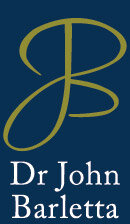Keeping on track after loss
Here are some issues about grief you will find useful to consider.
LOSS is being deprived of something or a person of attachment, either through a natural process, an accident, neglect or misfortune. The loss may be tangible (e.g., death, disability, divorce, $, baldness, menopause) or intangible (e.g., confidence, trust, purpose, opportunities, friendship, employment).
GRIEVING is the normal response experienced after the loss of a significant person or object.
GRIEF is the natural recovery process which involves changes in emotions, thoughts, behaviours and bodily reactions. (BEREAVEMENT is the term for being sorrowful after a death.)
Dealing with a loss is a very individual and lonely experience. It can destabilise your sense of control and safety, and remind you of additional (real or fantasized) losses in your life. Following a loss, there is a possibility for personal growth or decline. You need to explore the position in which you will dwell, between denial and despair. Ignoring the loss can have a negative impact on the natural grieving process, while also enabling reinvestment of energy in the future. Focusing on the loss can re-traumatise you, yet also enable meaning to be derived from the loss.
Grieving is necessary to re-establish the equilibrium… to adapt to the loss. It is not linear and you may, at times, feel like you are taking two steps forward and one step back. This is not unusual. There is no expected time to ‘get over’ a loss. It is more like a process of working thru negative experiences, tackling various challenges as they arise, while simultaneously getting on with life goals and responsibilities. You will move forward and continue to carry some pain.
Common Signs of Grief
EMOTIONAL: sadness, yearning, guilt, anger, loneliness, fear, shock, self-doubt, frustration, helplessness, numbness, shame, mood swings, anxiety, panic, emptiness, ambivalence, relief, acceptance.
COGNITIVE: confusion, disbelief, forgetful, dazed, denial, phobias, poor concentration.
BEHAVIOURAL & PHYSICAL: crying, trembling, fatigue, appetite changes, tension, palpitations, nausea, diarrhoea, constipation, unusual dreams, nightmares, social withdrawal, headache, stomach ache, various infections, dizziness, tightness in chest or throat, breathlessness, sleep problems, restlessness, agitation, loss of sex drive.
Pathway to Recovery
To acknowledge, understand and accept the reality of the loss or losses… find out all the details, attribute some meaning to what has happened, and see the loss as irreversible.
Feel the pain of the emotions connected to the loss…experience the range of feelings, in spite of how uncomfortable and painful they might be.
Adjust to a new life without the person or thing that was lost…learn new skills, take on different roles, and redefine self.
Withdraw emotional energy from the lost person or thing, and re-invest it in new relationships and activities… caring about new people and other things doesn’t mean you didn’t care about who or what was lost. Develop and implement plans for the future.
Be hopeful and expect to come thru this painful time. Accept your inability to control the loss and understand that all your feelings, thoughts and behaviours are normal. Channel your energy and efforts into re-establishing your life. Be sure to stay connected to others and engaged in activities. Seek help, personal and professional, when needed.

